Privacy in the Digital Age
Privacy in the digital age

For a computer geek, I am offline a good chunk of the time - sometimes for weeks.
In my modest cabin in the woods, where the natural world reigns supreme, and human influence is as limited as I desire it to be, to decide to write about privacy in the digital age often seems like a distant concern.
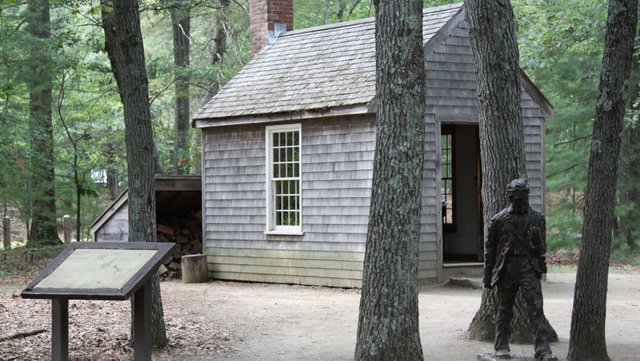
And it some ways, for me, it is - but given that it is something that I am passionate about, I would be doing myself and the rest of the world a disservice were I not to put my thoughts down in words.
It seems obvious enough to point out that privacy has been steadily degrading since modern computers took over the world - what was once impossible, became possible, and then easily possible.
Tracking billions of people - where they are physically, what they write to each other, how they spend their money, where they spend their money, who they talk to, how often, and about what.
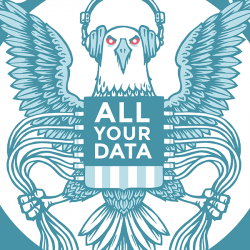
Governments and big corporations, collaborating together, betraying their electorates and customers, to paint a more and more accurate picture of the individual lives of as many people as possible, and use this information to quiet dissent, and make a profit.
I see this as a complete travesty of justice. And it must be fought.
Digital technology opened the doors to a world that our grandparents could have hardly even have imagined, and I am sure that in 30 years, there will be technologies around that we cannot even conceive of today. The world is more connected than ever, and this can be a great thing (in moderation, if you ask me), but it is not without some downsides.
One of the biggest downsides, which unfortunately I have accompanied and struggled to make other, less technical people understand, is the dangerous new acceptance that everything we do online is public.
I say not.

Sitting here in my chair, a bright sunny day outside, with the sound of the birds and the sound of the wind going through the many leaves, working on my writing, I am private.
No one knows what I am writing about, and few people know where I am. I am free to spend my day engaged in whatever activities it is that I deem worthy of my limited time on this earth, nearly certain in the knowledge that some government agency isn't recording the very words you now see, but before I publish them.
The words are public when I choose to make them public. If I choose to make them public. Not before.
This is important - would the musician become the musician if every failed chord progression was to be recorded, cataloged and observed, like an animal in a zoo?
Would a writer express the innermost thoughts of the mind, if his notebooks full of incomplete ideas and leads were for the whole world to see?
Would the programmer dare to write new software to improve the lives of millions, if it goes against official state propaganda and could land him in jail?
Few would. Most wouldn't.
Creating is often a private act, a dialogue of oneself with oneself.
In those initial stages, others are not invited.
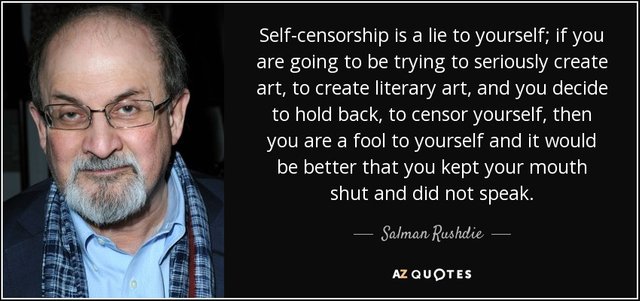
he gets it.
It is no secret that in the presence of surveillance, people will self-censor.
Over time, this will slowly - but surely - eliminate undesired (as defined by people who have power of you) thoughts from your mind.
It will also make you not want to associate with people with such undesired thoughts, for fear of guilt by association.
One would expect that all those lessons would have been learned with the lessons paid in blood by millions over the 20th century, but unfortunately, it seems that we forget quickly.
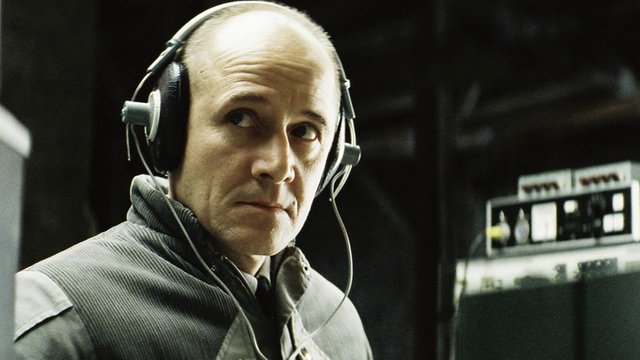
A life without privacy is a life without dignity. If we are not allowed to think in private, talk in private, BE privately, a deep and honest exploration of ourselves is not possible, for it will always be conditioned by the knowledge that we are being watched - we will be made to conform to the desires, or our projection of the desires/wishes of the watcher.
Think to yourself, how many times have you not said something online or offline, because you were not sure you were being watched or recorded? This is unfortunately a very common thing nowdays, pay attention when it happens, and memorize that sensation.
The intersection of privacy and the blockchain revolution
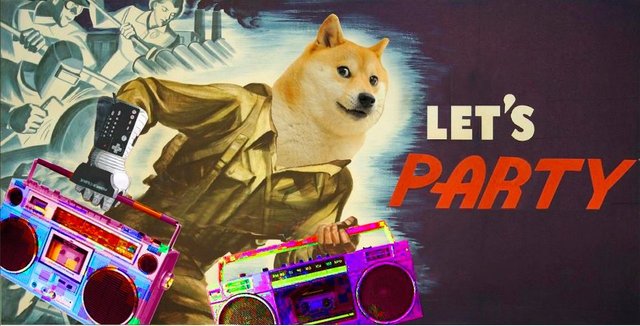
What led me to write this post today, after a long hiatus, was this thread on the official #bitshares forum, where discussions are underway to shape the future of the platform.
If you know something about my history on steemit, then you know I have been a #bitshares supporter since early on (way before steemit even existed). The potential of the project, I never doubted, but there was always one big problem.
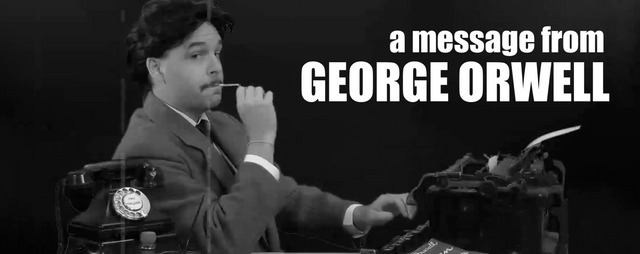
Complete and total lack of privacy.
Bitshares, you see, is 100% transparent.
Like #bitcoin - I hope you understand that bitcoin is also 100% transparent, and that it would very foolish to believe that it offers you any privacy.
Now, unfortunately, this is the norm with nearly all blockchain projects.
And I hope I can make you see why this is a bad thing.
You see, financial privacy is a very important thing as well.
Similarly to - as we've established - how we will self-censor what we say when we know that we are being watched, we will also (often unconsciously) self-censor when we spend money that we know is being tracked.
Do you have any doubt about this? Try buying illegal drugs (note: thought experiment) with a conventional payment method, and tell me that you don't feel it.
It's not because they're illegal per se - we could be talking about a controversial book too, which now will be forever tied to your identity, or perhaps a young man experimenting with sex toys, who would be ashamed of having his identity linked in this manner, and so on.
Indeed, illegal drugs were the main reason why #bitcoin took off early on, millions of people over the world suddenly perceived (wrongly, as it turned out) that they could relatively safely access something that they already desired, but were self-censoring before for fear of reprisals.
Whether you believe the War on Drugs is a gigantic failure and intrusion on civil liberties or not, I hope the point is clear.
Who controls the money, controls your actions. Who controls your actions, controls your thoughts.
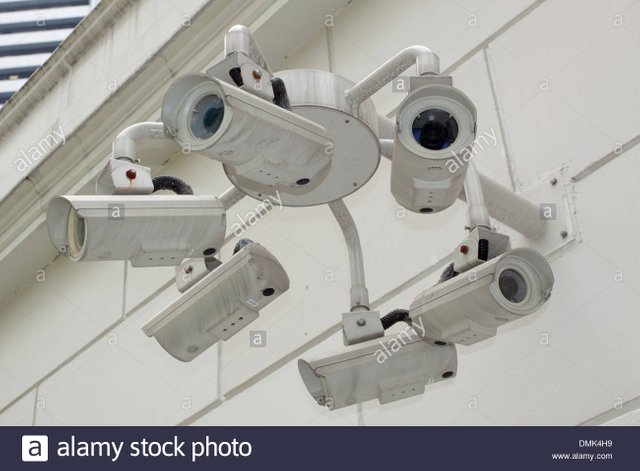
Now, of course, the consequences of believing that #bitcoin is actually private are beginning to show, and it would be a grave mistake to think that "this is fine, them drug dealers deserve it".
It has nothing to do with drug dealers per se - make no mistake, deanonymizing bitcoin users, and indeed users of 99.999% of the other blockchains out there, is trivial enough, to the point where every transaction you conduct with such technologies will be permanently tied to your real identity.
Drug dealers (and I'm not defending drug dealers, mind you) going down is just the beginning. Tomorrow it will be you.
We live in the anomaly
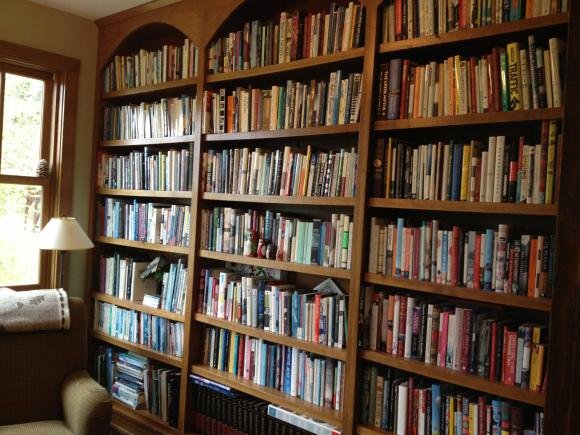
For thousands of years, physical money in the form of coins and, later, notes was king.
The peasant went to the market and bought some products, anonymous transaction.
The upcoming businessman took the train to a nearby city, anonymous transaction.
A court musician acquired his new violin from a reputable dealer in town, anonymous transaction.
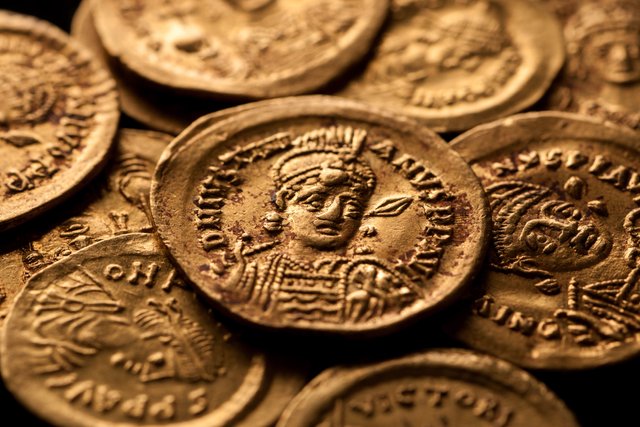
Everyone was paid in coins, anonymously. To spend their hard-earned money as they see fit.
True, the technology for the situation to be otherwise simply did not exist at the time - but I argue, hopefully convincingly, that just because we can, does not mean we should.
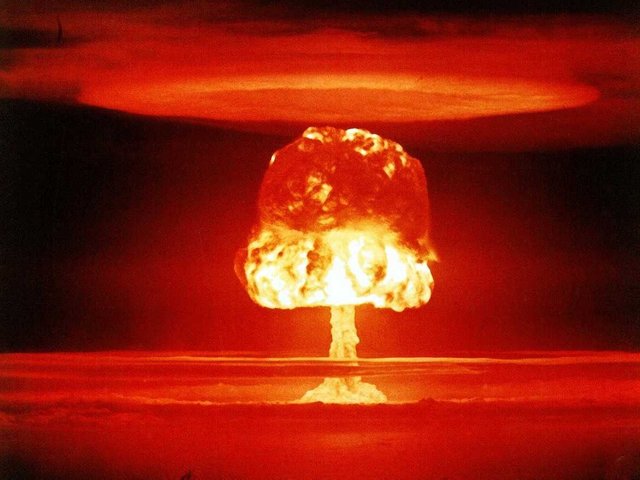
In short, financial privacy has been the norm for thousands and thousands of years, we need to have this perspective and understand that we live in the surveillance bubble right now - and the decisions we make right now will shape the world, the world we will live the rest of our lives in, and perhaps most importantly, the world that our children and their children will inherit.
Will that be a world where the norm is powerful people knowing what your child thinks, does, who she talks to, how often, what are her interests and political views, who she has sex with, what she likes spending money on, what she thinks?
Consider that question carefully. For I think that if certain influences on society are allowed to go on unabated, we are fast headed to a world where a free person cannot enjoy living.
It is early, there is still time.
Blockchain & Privacy - conclusion
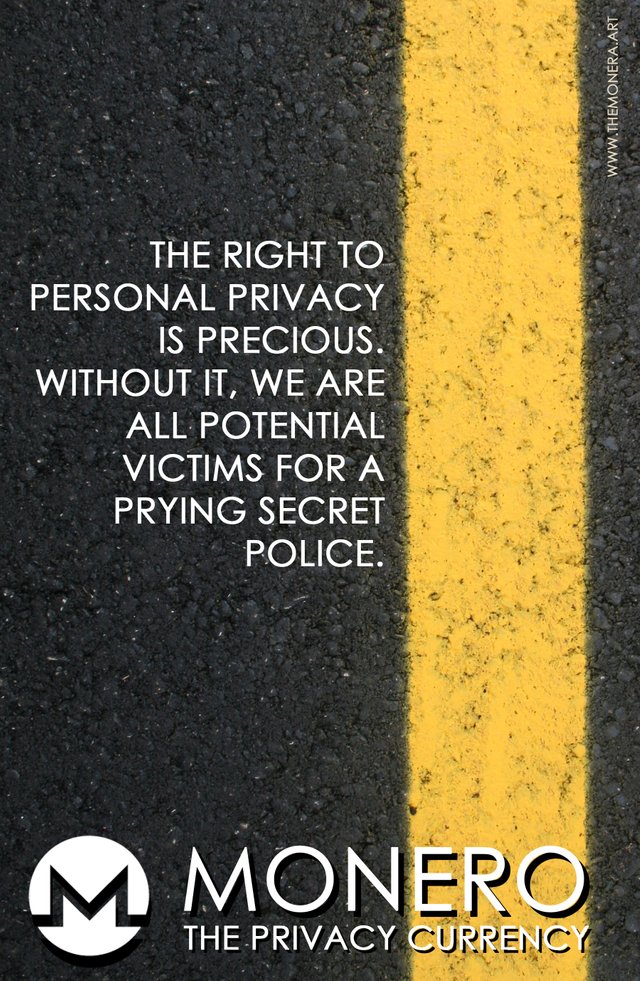
Understand, then, that as the game stands right now, there is only one cryptocurrency that properly transports the concept of private money into the digital age.
While I will not go into the technical reasons why this is so (if there is enough interest I could write a lengthy post on why this is my stance), I do urge you, if you believe that financial privacy is a healthy thing in a free society (and I most certainly do), to research #monero.
Quite frankly, it is what most people think #bitcoin is.
Compare:
So - "invest" as you see fit, but understand, there is only one cryptocurrency right now that would be useful if your goal is to transact privately with confidence.
And be very careful about what you wish the standard/most widely used cryptocurrency to be.
Something that compromises everyones' financial privacy 100% of the time?
Or, perhaps - something that protects everyone's financial privacy ?
Those are the choices we must now make.
And indeed - you can choose.
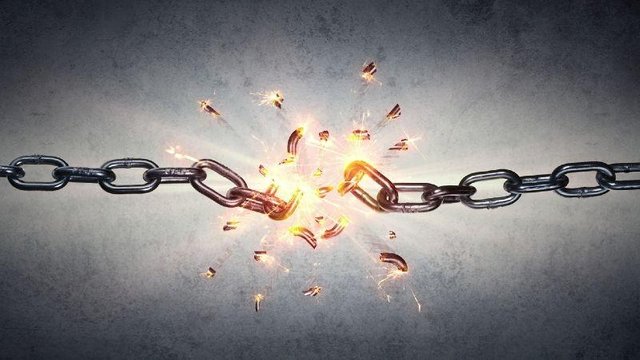
Good post
Bettween BTC and XMR, Monero is the winner regarding privacy, for sure.
Good post, very well structured. Cheers
you have my full UV and resteemed, great post!
Thanks for writing this! It's puzzling to me that more people don't seem to understand the importance of privacy / anonymity.